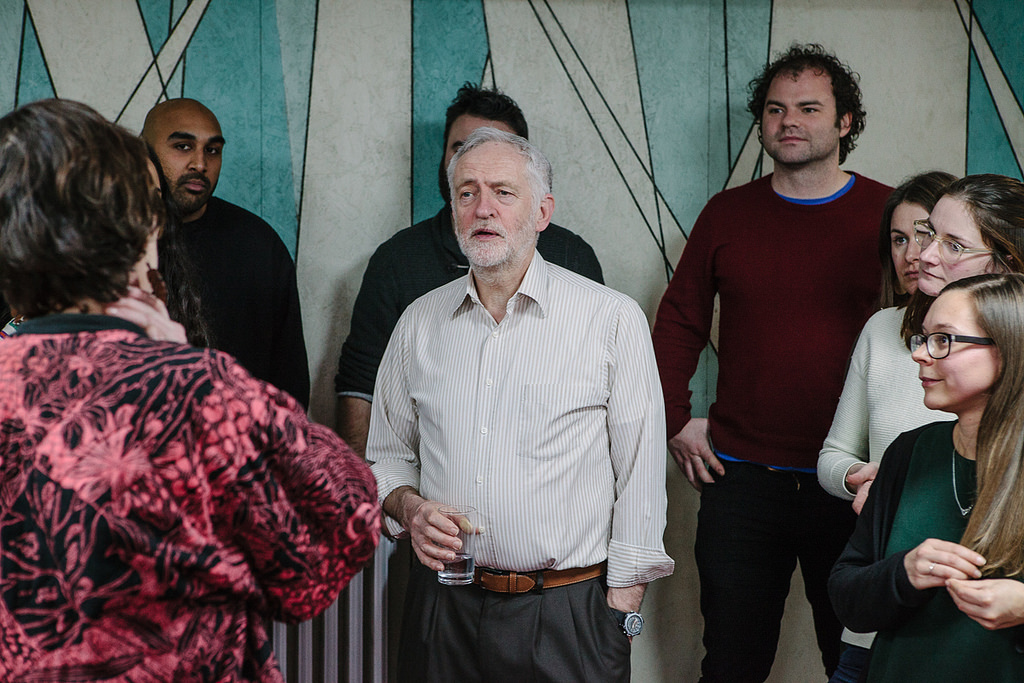On Friday Jeremy Corbyn and local councillor Asima Shaikh visited Outlandish HQ and stopped in at Space4 for lunch. As well as being leader of the Labour Party, Corbyn is our local MP so we were keen to show him our initiative to support co-ops at a local level.
Corbyn said about his visit, “Ahead of our New Economics conference I visited Outlandish, a successful business in my constituency that transformed into a co-operative to put its workers at the heart of everything it does. Great to see their Space4 initiative is supporting new co-ops to flourish.”

During his visit, we updated Jeremy on Outlandish’s main political projects of the last year, including schoolcuts.org.uk. We mulled over some ideas for how we can support the independent fashion businesses on Fonthill Road and brought him up to speed with the work we’ve been doing with CoTech, the UK-wide network of worker co-ops.
Over lunch, users of Space4 got a chance to show the variety of projects taking place there, from building games to teach young people code, to supporting migrant integration, to building augmented reality applications that promote empathy. We also discussed Jeremy’s love of cheese (he swears there are more varieties of cheese in the UK than there are in France), his travels in northern Africa in the 80s, friendship with the late Helen Bamber and football fanaticism, of course.

The Labour Party has been vocal in their support for the co-operative model, announcing at the last conference that it intends to double the size of the sector. It would like to see more investment given to supporting initiatives that provide fair and viable models for transport infrastructure, construction and more.
The demise of Carillion has thrown a spotlight onto just how inefficient privatisation and outsourcing are and the miserable state of PFI initiatives delivering basic public services. As far as we can see, there’s a huge argument for co-operatives delivering these projects – without scandalous pay-outs to shareholders, and by putting workers in the driving seat, they would deliver much better value for money to the tax-payer.

Increasingly the co-op model is gaining traction as a viable alternative to privatisation of the public sector. It’s being used to deliver social care in a way that gives both care givers and receivers a voice in the way that services are delivered.
In Preston, the university, local authority and other major spenders are examining their procurement and supply chains. They’re investing in co-ops to deliver services as a way to retain money in the local economy and create good jobs, rather than seeing it flow out of the area into the coffers of London companies, international conglomerates and, more often than not, tax havens.
The Labour Party is also focussing on how to invest in technology. John McDonnell is leading the way, touring the country and inviting suggestions from technology business leaders for how we can build a socially and environmentally sustainable technology sector.

That’s exactly what CoTech is about. We are a collection of small organisations, but we deliver high quality and high value products, retain our specialisms and work together to deliver big projects. We’re very excited that we can be supporting this UK network from our home in Islington and that, with the help of the Labour Party and other progressive folk who see that the current system isn’t working, our small projects could have a very big influence.


